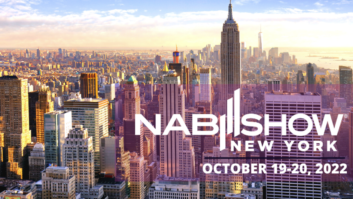The headline above asks a valid question as we move into the second quarter century of digital media’s existence. For a growing percentage of today’s radio audience, digital media is not new and never has been.
If you define the start of the digital media era with the CD, which moved into the mainstream in the mid-to-late 1980s, then anyone up to legal drinking age doesn’t really think of that format as replacing anything. It’s certainly not new to them, now or ever — especially when you consider that for most people, their first exposure to playing recorded music for themselves, and thus the awareness of a “format,” started around age 5 or later (you do the math).
For these Millennials, the CD is the music distribution method of their youth; now, almost nostalgically, that format is itself being eclipsed by online distribution.
If instead you set the new media boundary at the start of the Internet’s mainstream popularity, the era begins in the mid-1990s, or perhaps a bit later if you particularly focus on audio/video media on the Web.
This means that the truest of digital natives are just moving into the rated audience demographics (12+) zone. For them, “new media” hasn’t been invented yet; it’s just “media.”
Meanwhile, radio to these audiences has always been there and has stayed about the same all along. So while digital media may not seem in any way new to these younger cohorts, they certainly perceive radio (and anything else from the analog era) as truly “old media.”
They look at radio from the other direction, not with the excitement of digital-immigrant Boomers over the promise of transition, but with a kind of pity reserved for aging relics that have outlived their relevance.
This labeling goes well beyond semantics. In the media world, perception can have strong market impact, often stronger than the force of empirical analyses.
That’s why it has become so important for radio to shift such perceptions now before these new generations of consumers hit their stride as the prime audiences of tomorrow.
So forget the “new media” terminology, unless you want to sound quaintly obsolete. It’s like calling a car “the horseless carriage” to these younger audiences. And if unchecked, this problem will only worsen with time.
Perception is power. It’s time to rebrand broadcast radio as but a single delivery platform within a media provider’s market presence — and one that’s fast becoming a legacy component, at that.
If current perceptions of these younger audiences toward radio service can be altered, this could be considered in retrospect as the industry’s most important digital transition.
— Radio World










